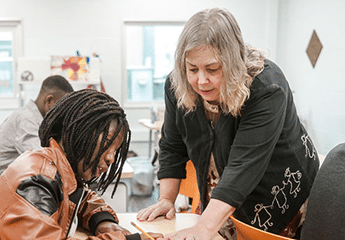You can study and read more to increase your IQ or intelligence quotient. Working on understanding others and yourself can boost your EQ or emotional intelligence. But how can you improve your CQ or cultural intelligence to add value to your personal and professional life?
Cultural intelligence is “an individual’s capacity to function effectively in situations characterized by cultural diversity” (Ang & Van Dyne: 2015, p. 3).
We live in a world of quickly increasing diversity, where this capacity has become more important every day. What can we do to increase it?
Professor of psychology Harry Triandis (1994) advocates increasing cultural intelligence through knowing the local language, possessing cross-cultural work experience and having lived in diverse cultural settings increases increases CQ (Cultural Intelligence). Studying abroad and taking even short trips to other cultures can increase CQ.
With experience of strengthening my own cultural intelligence, I’ve discovered three strategies that can help you grow in your understanding and recognition of cultural diversity. Let’s take a look at three strategies: understanding your history, surrounding yourself in a different culture and learning new languages.
1. UNDERSTAND YOUR CULTURAL HISTORY
Before you can begin to understand the cultures of other people, you need to understand your own culture. Taking a personal inventory of why you believe what you believe and where you come from will help you in your mission to understand others.
For me, writing about my cross-cultural journey in my mid-twenties for a class in Cross-Cultural Leadership gave me insight about the cultural biases and assumptions I held.
This is a great exercise; one that almost anyone can try. Start by going back and looking at what your interactions with other cultures have been and how they impact the way you view the world. Take a close look at the world in which you grew up and the attitudes and approaches you to to those who were different than you. You may just discover that what you learned way back then is still with you—and needs to be edited or re-examined.
Whatever your background has been, individuals within it had a certain way of viewing the outside world that was communicated to you. Although you may not uphold this now, it most likely had an impact on how you view the world today. It is important to take an inventory of these things and assess how they have impacted your life. A thorough knowledge of yourself acquired in this way will help you in your interactions with other cultures.
2. EXPERIENCE A DIFFERENT CULTURE
To learn about another culture, you have to be in it.
For me, experiences of being surrounded by another culture, one very different from my own, have been very formative. When I moved to and taught in Nigeria, I was plunged into another cultural background. For the first month I was there, I didn’t see or meet anyone from my own culture. It was a great learning experience and helped me learn how it felt to be a minority and be noticed wherever I went.
You may not have the opportunity to cross-cultural boundaries completely. But we all have opportunities for some type of cross cultural interaction. How can you find a way to surround yourself with another culture? What churches or societies might you visit that include individuals who are different than you? You may feel intimidated by the cultural barriers you face but crossing them is important. By doing so, you may learn to cross cultural boundaries again with greater fluency and ease.
One of the key elements in cross-cultural interaction is the degree of separation you achieve from your own culture and background.
For example, most of us are not so impacted by vacations in other countries because we do not interact with local culture in a natural setting. Hotel personnel in other countries become experts at meeting our needs and adapting to our own ways and preferences rather than us learning theirs. Because of this, not all journeys overseas can build cultural intelligence. If you are surrounded by individuals from your church or home community as you visit another culture and do not have the opportunity to interact with it, you might actually experience a decrease in your cultural intelligence by being influenced by stereotypes about the culture. The key is to experience authentic interaction—a dialogue that takes place in their cultural context, not in ours.
3. LEARN NEW LANGUAGES
Another key to the development of cultural intelligence is interaction with other languages. Some theories of language, such as the Sapir-Whorf’s Linguistic Relativity Hypothesis, hold that languages are not only means of communication but are also systems by which we create the reality in which we live (as cited in Hussein, 2012). The ability to interact in another language influences how we can increase our cultural intelligence.
Languages are tailored to describe the reality that surrounds a given culture, and when we acquire one, we gain an insider’s picture of how that world is structured in a way that is not possible through translation. Translators are required to put things into our own language with words we understand and are adapted to our cultural background. As a result, we may not understand the true picture of a local culture.
We can increase our cultural intelligence without learning another language, but acquiring even rudimentary conversation skills in another language can greatly boost our capacity.
We all have opportunities to learn languages if we choose to do so. Local restaurants in some of the smallest of towns are filled with individuals from other countries, some of whom will help us learn their language should we choose to try. Spanish is one of the most spoken languages in the United States, and opportunities for total immersion in it exists both in the larger cities of the United States and throughout Latin American countries. A week of total immersion language training in many places is not expensive and can be a boost on the journey to language acquisition.
With these three strategies of understanding our own cultural histories, immersing ourselves in another culture and learning other languages, we can all increase our cultural intelligence if we try. All of them are practical approaches and can be implemented by those who live busy and active lives. Enjoy the journey!
GET GLOBAL IN YOUR STUDIES
Cornerstone Online incorporates a global perspective in at least some point during each program. Whether in business, psychology or leadership, gaining a global perspective has great value. Explore our degree programs to learn more.
REFERENCES
Ang, S., & Dyne, L. V. (2015). Handbook of cultural intelligence: Theory, measurement, and applications. Armonk: Routledge.
Hussein, B. A. (2012). The sapir-whorf hypothesis today. Theory and Practice in Language Studies, 2(3), 642.
Triandis, H. C. (1994). Culture and social behavior. New York: McGraw-Hill.










